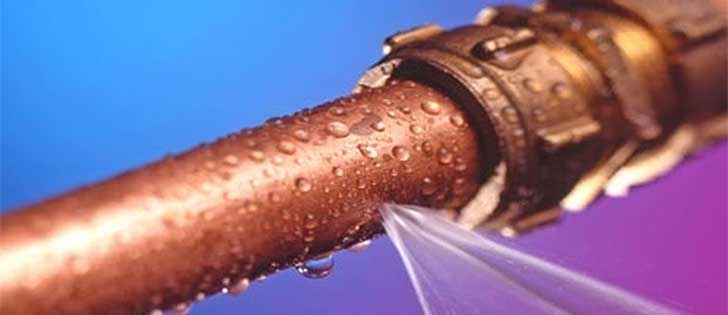Burst Pipe Repair: Professional Solutions to Minimize Damage and Costs
Preventing Burst Pipeline: Necessary Tips to Protect Your Plumbing
Stopping burst pipes is a crucial worry for homeowners, specifically throughout cooler months when the risk of cold is heightened. Applying calculated actions such as appropriate insulation, routine assessments, and maintaining regular interior temperatures can substantially lower the possibility of pipeline failing.
Understand Pipeline Vulnerabilities
Understanding pipeline susceptabilities is necessary for reliable pipes maintenance and preventing pricey damage. Several factors add to the susceptibility of pipelines to ruptureds, including material structure, age, and ecological conditions. Older pipes, specifically those made from galvanized steel or polybutylene, often degrade in time, bring about increased danger of ruptures and leaks.
Temperature level fluctuations can likewise substantially influence pipe honesty. In cooler climates, water trapped in pipes can ice up, applying and expanding pressure on the pipe walls, which might eventually bring about a ruptured. High water pressure can strain pipes, specifically at joints and bends, enhancing the likelihood of failing.

Insulate Pipes Appropriately
Correct insulation of pipes is important for preventing freezing and subsequent ruptureds during winter (burst pipe). Protecting your plumbing system successfully safeguards versus temperature level drops that can result in costly damage. Begin by determining susceptible locations where pipelines are revealed to outside temperatures, such as cellars, attic rooms, and exterior walls
Usage foam pipeline insulation sleeves or cover insulation tape around these areas to give a safety barrier. Ensure that all areas of the pipes, particularly those with restricted warmth direct exposure, get sufficient insulation. Pay special interest to joints and installations, as these are a lot more prone to cold.
When protecting, it's important to select products that meet regional building regulations and are proper for the details setting. Fiberglass insulation is usually recommended for its thermal resistance residential properties. Additionally, consider utilizing heat cables or tape in extreme problems, which can be plugged in to give additional warmth
Consistently check shielded pipelines for any indicators of wear or damage, as jeopardized insulation can reduce its efficiency. By taking these proactive actions, you substantially decrease the threat of pipeline ruptureds, making sure a dependable pipes system throughout the cold weather.
Maintain Consistent Temperature
A secure interior temperature level is essential for protecting against burst pipelines throughout the freezing months. When temperatures decline, water within pipelines can ice up, developing and expanding pressure that may eventually create the pipes to ruptured.Using a programmable thermostat can aid handle interior temperature levels efficiently, ensuring that areas with plumbing continue to be warm even when the house is unoccupied.
This minor circulation of water can avoid freezing by relieving pressure within the pipelines. By carrying out these methods, property owners can considerably minimize the danger of pipeline ruptureds and guard their pipes systems against the severe winter components.
Regularly Inspect Plumbing
Regular inspections of plumbing systems are essential for avoiding burst pipes and maintaining overall home stability. Regular checks allow homeowners to identify prospective issues prior to they escalate right into costly repairs or major water damages. Throughout these evaluations, it is crucial to examine visible pipes for signs of rust, leakages, or put on. Pay unique attention to locations prone to cold, such as basements, attic rooms, and exterior walls.
Furthermore, checking links and joints is important, as these factors are frequently vulnerable to leakages. Homeowners must also evaluate water pressure degrees, as extreme stress can stress the plumbing system and enhance the risk of pipeline ruptureds.
Consider organizing professional pipes assessments at the very least when a year, especially before winter months, to ensure your system is prepared for colder temperature levels. By being positive in your approach, you can secure your home versus the turbulent and expensive repercussions of burst pipelines.
Know Emergency Treatments
Recognizing emergency situation procedures is vital for every home owner, especially after conducting regular plumbing assessments. Being prepared for a plumbing emergency situation can considerably mitigate damages and conserve prices.
Following, maintain vital devices convenient. A pipes emergency situation kit need to include a wrench, bettor, and towels, in addition to a flashlight and a container for small leakages. visite site In addition, take into consideration having the contact info for a trusted plumbing conveniently offered, needs to the circumstance escalate past your control.
If you spot a leak or burst pipe, quickly switch off the water supply and alert your plumbing. Document the damage with photos for insurance policy functions. Understand the indicators of prospective pipes issues, such as uncommon water pressure variations or damp places on walls
Inevitably, proactive expertise and quick action are crucial in managing pipes emergencies, guaranteeing your home stays secured and lessening possible damage.

Verdict
In final thought, protecting against ruptured pipes requires a complex strategy that includes understanding pipe vulnerabilities, proper insulation, preserving consistent indoor temperatures, routine evaluations, and understanding of emergency treatments. By applying these essential strategies, the danger of plumbing failures can be considerably reduced, thereby guaranteeing the longevity and efficiency of the pipes system. anchor Positive steps not only protect versus possible damages however additionally add to total water conservation and the protection of residential or commercial property.
In chillier environments, water trapped in pipelines can freeze, broadening and exerting pressure on the pipeline walls, which may eventually lead to a ruptured. When temperature levels decline, water within pipes can freeze, increasing and developing pressure that might ultimately trigger the pipelines to burst. By executing these methods, home owners can considerably decrease the risk of pipeline bursts and protect their pipes systems versus the harsh wintertime aspects.
